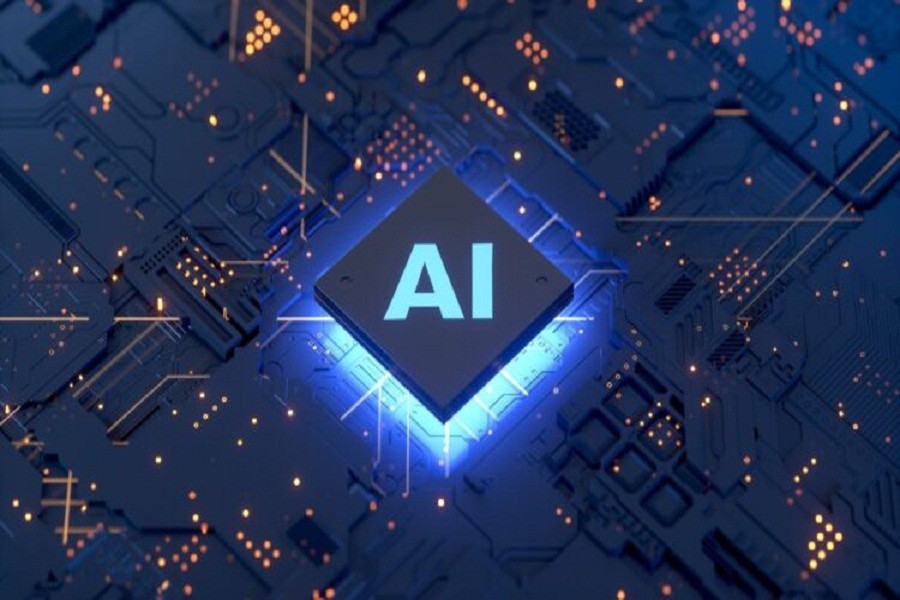Artificial Intelligence, upon hearing these two words, our mind creates imagination of a highly advanced civilisation, only seen in sci-fi movies. With the world advancing towards the Fourth Industrial Revolution (Industry 4.0), this imaginary world is close to reality, and the hoverboards and flying cars that have so long fascinated us can be a product of the real world as well.
As we inch towards an automated world from our fantasies, the whole world is relying more on artificial intelligence-based technologies, and AI is becoming an indispensable part of business and organisations.
Global picture
Businesses worldwide are looking for AI-based solutions as they are less time-consuming and efficient than human-generated solutions. An estimate covering 12 developed economies shows that artificial intelligence will significantly impact the world economy and generate more than 0.5 per cent of the world's economic output. The forecasts also show that the inclusion of AI in the global economy can double the annual global economic growth rates.
A significant rise has also been predicted, up to 40 per cent by 2035 in labour productivity.
Different multinational companies are ensuing AI based-technologies in the market. For example, Toyota has been investing billions of dollars in incorporating AI with BigData to facilitate mobility assistance for people who are afraid or less confident about driving.
Among others, the tech giant Google has recently launched TensorFlow, their open source version af an AI engine. Google uses it in many products and services.
To enter the era of digitalisation and transformation initiated by the fourth industrial revolution, Bangladesh is also embracing the new edition of technologies, including artificial intelligence. Automation technologies are taking up important roles in banking, security management, telecommunication, pharmaceuticals, agricultural and ready-made garments sector. Many AI start-ups are emerging as promising companies to improve the lives of Bangladeshis as well as boost the economy.
The scene in Bangladesh
Bangladesh, one of the fastest growing economies in the world, has seen a significant rise in some promising AI-based start-ups throughout the last few years. One of the first AI companies, Sigmund, is working on providing better security using AI-driven technologies.
Their creation ADAMS (Advanced Driver Assistance and Monitoring System) is used to alert drivers ahead of any potential danger.
Socian is an AI-oriented social media platform. The company provides conversational AI-based solutions, NPL-based speech recognition, sentiment analysis, speech-to-text, chatbots, voice recognition and many more. What makes Socian unique from others is that they are the only analytics company to work with Bengali data.
Another amazing organisation is Ipage. It is an AI-based company working to improve the agricultural sector through AI-based technologies.
Revenue from AI enterprise solutions is predicted to expand from USD 1.62 billion in 2018 to USD 31.2 billion in 2025, representing a 52.59 per cent compound annual growth rate (CAGR). Those growth areas include recognition software and tagging, patient data handling, global positioning system(GPS), predictive maintenance, methodologies and machine intelligence to predict and thwart potential threats, and many more.
The government of Bangladesh has also sketched an elaborate plan for introducing AI as an industry to the economy. The plan includes the development of infrastructure for establishing industry, creating a skilled workforce by training students from the undergrad level on different courses and familiarising them with artificial intelligence. They also plan to promote AI-based start-ups by providing funding for their businesses.
Challenges to overcome
However, AI companies have greater challenges ahead to make a firm position in the industry. Even if there are many opportunities, resizing the market would not be easy. As Bangladesh is not infrastructurally developed and there is an acute scarcity of skilled workforce, it is easy to conclude that we are not ready yet for the technological revolution.
Amid all these challenges, one good news is that the Bangladesh government and other private investors are working towards overcoming all these shortcomings. The government also has a planned approach towards developing AI infrastructure, training a skilled workforce and industrialisation of AI-based technology.
Bangladesh's population comprises 34 per cent of youth who are technology driven; therefore, the prevalence of AI companies in the IT industry may hold greater prospects for our country. In future, we can also dream of a country where our imagination can meet reality.


